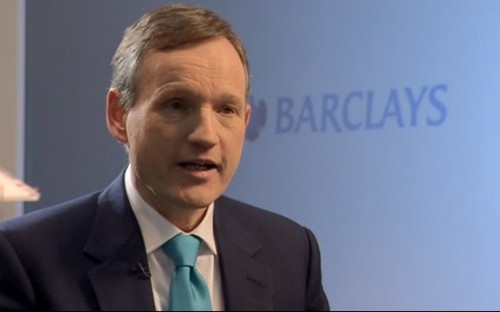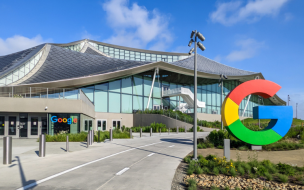Nearly a third of the CEOs leading the world's best-performing public companies have MBA degrees – but it might matter less which business school you chose when climbing the greasy pole.
An MBA is still your best bet for a seat on the world’s top boardrooms, according to new analysis by the Harvard Business Review.Just under a third of the world’s best performing chief executives leading publically traded companies have MBA degrees, data from the report The Best-Performing CEOs in the World show.
Harvard Business Review’s report, in the November edition, ranked chief executives on how much return their companies' shareholders earned on their investment and how much the chief executives increased their companies’ market values.
It shows that 29 of the best 100 performing CEOs have MBA degrees, including Gregory Case, chief executive of insurance group Aon, and John Chambers, CEO of Cisco Systems, the networking equipment company.
Harvard Business School produced the most chief executives – seven – and the list is dominated by US-based business schools.
California’s Stanford Graduate School of Business produced two chief executives – Carlos Alves de Brito of Anheuser-Busch InBev, and Stephen Luczo, who leads Seagate Technology – as did Columbia Business School, which counts David Simon of Simon Property Group and Ed Heffernan, CEO of Alliance Data Systems, as alumni.
David Pyott, chief executive of drugs giant Allergan who earned an MBA at London Business School, and Paul Desmarais Jr who is CEO of Power Corporation of Canada and studied at INSEAD, are the only MBAs who attended European business schools.
However, the findings suggest that the world’s leading companies place value in MBAs at a time when the degree is facing stiff competition from a host of other programs and professional qualifications.
But only 13 of the 29 leaders have MBAs from the top-ten ranked MBA programs, suggesting it matters less which business school you attend when climbing the corporate ladder.
Only 3% of the CEOs are women, reflecting the lack of women enrolled at the world’s leading business schools. The median age of these females is 58.
The highest-paid chief executive does not hold an MBA. Bob Iger, CEO of Disney, has a total pay package of $34.3 million, according to the report.
Harvard also found that American CEOs are paid the most – $12.1 million, compared with $6.4 million for non-US chief executives.
The report found that the top 50 have on average delivered total shareholder returns of 1,350% during their time as chief executives, adjusted for exchange-rate movements.
However, leading a company and creating value depend on many skills that are hard to measure and not included in Harvard’s analysis, including strategic vision, authenticity and long-term planning.
Harvard’s findings echo a similar ranking of CEOs in the FT500 index earlier this year. The Financial Times data show that 29% of companies featured in the FT500 are led by an MBA graduate.
These include Antony Jenkins, CEO of Barclays and a graduate of Cranfield School of Management, and Coca-Cola chief executive Muhtar Kent, who graduated from Cass Business School.
Two French business schools also produced CEOs in the FT500. Jean-Pascal Tricoire, CEO of Schneider Electric, earned an MBA at EMLYON, and AstraZeneca CEO Pascal Soriot graduated from HEC Paris.
Nearly a quarter of the CEOs in Harvard’s list have engineering degrees – 24 out of 100 – including Jeffrey Sprecher who leads Intercontinental Exchange, the financial services company.
“Studying engineering gives someone a practical, pragmatic orientation,” said Nitin Nohria, dean of Harvard Business School, who holds an undergraduate degree in chemical engineering from the Indian Institute of Technology, Bombay.
“It makes you think about costs versus performance. These are principles that can be deeply important when you think about organizations,” he added.
The best performing CEO, Jeff Bezoz of online retailer Amazon, also has an engineering degree.
Asked how he balances the long-term versus the short-term when thinking about innovation – a skill acknowledged as important when leading a company – he said in the report: “I bet 70% of the invention we do focuses on slightly improving a process. That incremental invention is a huge part of what makes Amazon tick.
“There’s a second kind of invention, which is more clean-sheet and larger scale – things like the Kindle or Amazon Web Services. We have a culture that supports the risk-taking and time frames required for that.”
Student Reviews
Best Journalism school in Europe
When I first stepped onto the campus of City, University of London, I knew I was in for a ride - and not just on the Tube! With its vibrant energy and an impressive repertoire of programs, City U became my home away from home.
The Journalism program was kind of a big deal. Rumour was that we were the best in Europe!
The lecturers were not just experts in their field; they’re practically journalistic royalty. They were invested, passionate, and had a knack for turning the most flat press release into a riveting news story. With their guidance, I’ve learned to navigate the chaotic world of media like a pro.
The campus was a melting pot of every culture, being that we had such a diverse international crowd.
Being in the heart of London, I had the world at my fingertips - there was always a new corner to explore, a hidden gem of a cafe to discover, or a street performer!
City, University of London wasn't just a university; it was a chapter in my life story that I’ll never forget.
Learning environment
The teacher-learner ration is manageable, giving each learner a chance to gain personal attention. It is also easier following up on the progress of a student, as the numbers per class is not large. the conducive environment for learning includes clean classes, standard desks, world class instructional facilities and the opportunity to engage lecturers even after their sessions. The team spirit at City is above board, with learners getting chance to learn both from instructors and colleagues. This is the university of choice; the place to be.
Classes
I liked that each class had a manageable number of learners, making the professor-learner ratio favor knowledge acquisition. I also liked that study schedules were manageable, and not overwhelming. The focus on talents and gifts even within the learning environment makes it possible for learners to achieve the best of their potential, and this has worked to the advantage of those that have schooled at City, University of London
Classes
The diversity at City University facilitates interactions and is a direction toward the unity of the world. The classes are well built to match the number and needs of all students regardless of the elements of diversity that set people apart. The use of technology in delivery makes learning even more interesting and achievable. At City University there is no distinction pegged on the issues that make people unique.
professors
The team of lecturers at the Uiversity are well experienced. Their level of insight and the methodologies of delivery works for the interes of the leaeners. My learning experience was largely boosted by the level of knowledge of the professors at the institution, and their passion to transfer the same to learners. I appreciate every class I attended because of the level of insight I was able to gather
The best university I’ve been to
The campus and the people I've met have made it a wonderful experience. I was reared in a small town with a graduating class of only 88 individuals, so moving to City University was a huge adjustment for me. My dorm has more residents than my whole high school combined! I enjoy the atmosphere here, and everyone is so friendly. Outstanding academic options and a stunning campus. Really great from beginning to end. The educators genuinely love what they do, and the students are ready to learn. On or around college, there is always something to do with friends, and the social scene is particularly warm.
Bayes Business School
As a student at City university attending Bayes Business School I would totally recommend choosing this university as the experience is exceptional with great social networking opportunities . Professors are significantly helpful, delivering with excellence and professionalism. Everyone is happy to help and make you feel welcomed in such an esteem university as City, offering exceptional development and guidance through out the course.
Economics and Politics
Incredibly amazing university, the way they polish students and help them boost their morale and think intellectually is worthwhile. Many universities have international partnerships to allow exchanges between their students. The most obvious subjects for these opportunities would be those that involve languages, and the study of people and places.
Clinical biology
I really like it it’s perfect for me with not too many people and not too few either. All the modules are amazing. I love the toy bar. I love all the societies that I’ma part of. Especially the colour Bollywood society
Unlocking My Potential at City University London
My time at City University London was truly transformative. The university's vibrant community and diverse extracurricular activities allowed me to forge lifelong friendships and professional connections that extend beyond the classroom. I was impressed by the university's commitment to academic rigor, character development, and personal growth, which created an ideal environment for me to reach my full potential. The research-driven and industry-relevant curriculum provided me with a solid foundation in international business, while the dedicated faculty and staff offered invaluable guidance and support. I feel grateful for the well-rounded education and holistic experience that City University London offered, preparing me for success in my career and beyond.
Rather interesting
The academics are tough, but in a good way. The professors are experts in their fields, so you know you’re learning from the best. They push you to think for yourself and really dive deep into the subjects. But it’s not all about hitting the books; London itself is like an extension of the campus. You’ve got museums, galleries, and just the general buzz of the city to keep you inspired.
Urban campus life
At the University of London, I have experienced dynamic and diverse academic environment where I was challenged by rigorous coursework. You will have the flexibility to choose from the wide range of courses, participate in numerous extra-curricular activities and take advantage of the many opportunities








